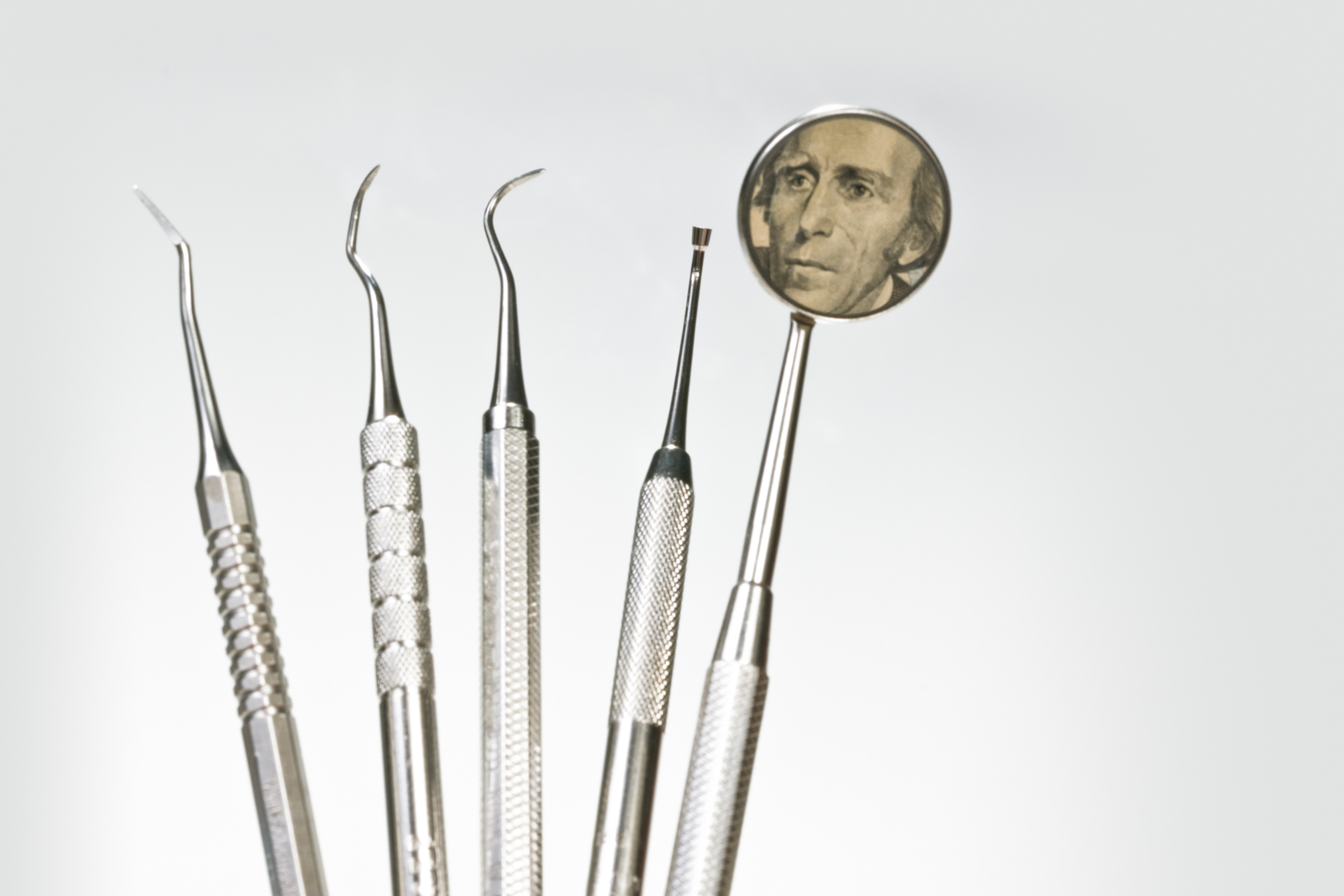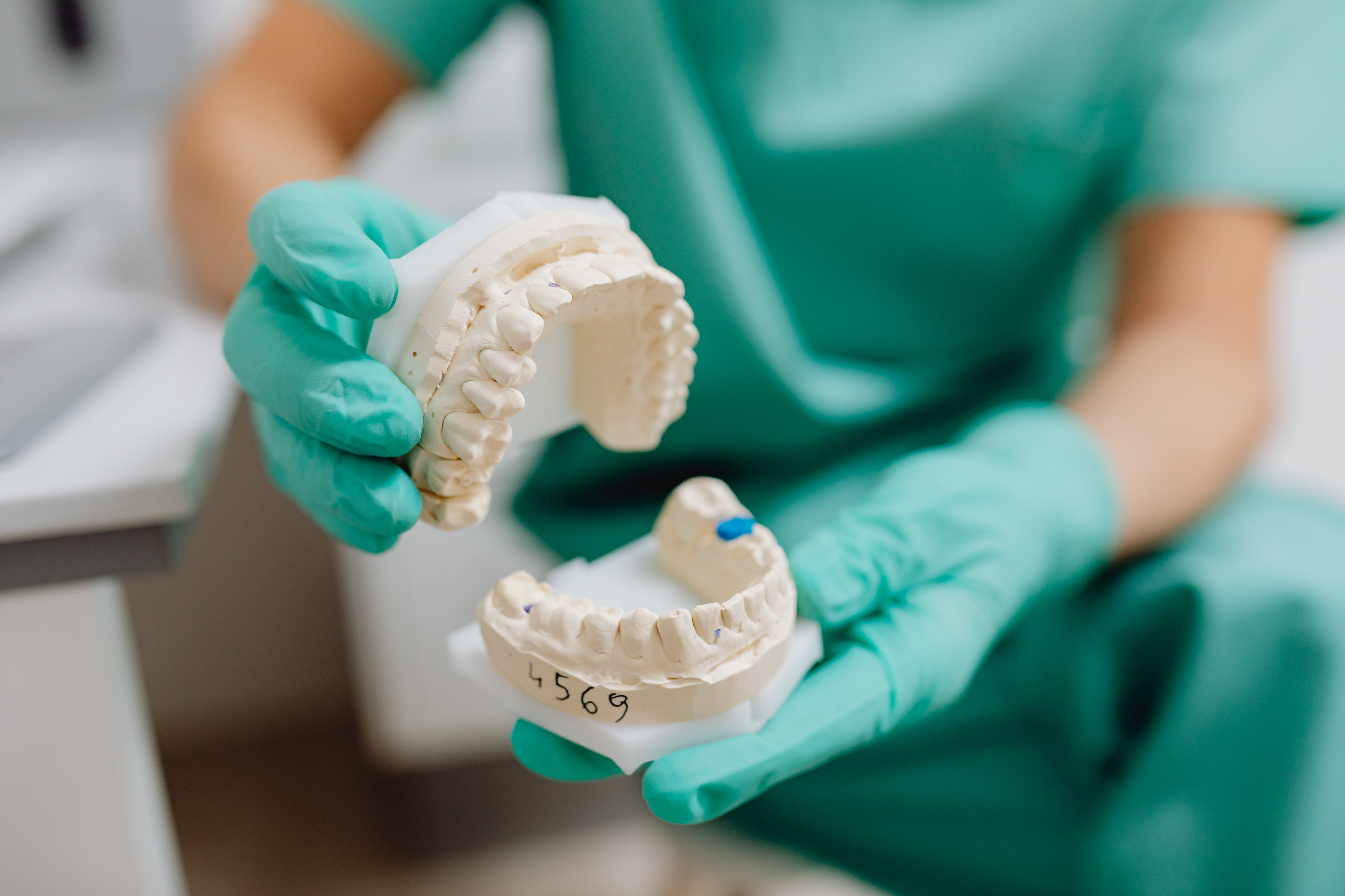Dental School Exam Requirements: The Dental Admissions Test (DAT)
Learn all about the Dental Admissions Test (DAT) and the essential requirements for acing your dental school exams.
Posted April 10, 2025

Table of Contents
The Dental Admissions Test (DAT) is a crucial component of the dental school application process. It serves as an indicator of an applicant's academic aptitude and readiness for the rigor of dental school. Understanding the importance of the DAT and how it factors into dental school admissions is essential for aspiring dentists.
How Important Is the Dental Admissions Test?
The Dental Admissions Test (DAT) is a crucial component in the dental school admissions process. Dental schools utilize this standardized test to assess applicants' scientific knowledge, critical thinking skills, and problem-solving abilities. A strong performance on the DAT can significantly enhance an applicant's chances of acceptance into their desired dental program.
Admissions committees rely on the DAT scores to compare the academic abilities of applicants from various educational backgrounds. It provides a standardized metric to evaluate candidates fairly, ensuring that all applicants are assessed on an equal basis. The scores obtained from the DAT play a vital role in helping admissions committees assess an applicant's potential for success in dental school and the dental profession as a whole.
The Role of DAT in Dental School Admissions
The Dental Admissions Test plays a pivotal role in the dental school admissions process. It serves as a reliable indicator of an applicant's aptitude for the rigorous curriculum and demands of dental school. By evaluating an applicant's scientific knowledge, critical thinking skills, and problem-solving abilities, the DAT provides admissions committees with valuable insights into an applicant's readiness for dental education.
Moreover, dental schools receive a large number of applications each year, making it essential to have a standardized assessment tool like the DAT to objectively compare applicants. The DAT scores allow admissions committees to make informed decisions and select candidates who demonstrate the highest potential for success in dental school.
Read: Teeth, Tests, and Triumphs: A DAT Study Guide Worth Grinning About
The Structure of the Dental Admissions Test
The Dental Admissions Test consists of four main sections, each designed to evaluate specific skills and knowledge necessary for success in dental school.
The first section, the Survey of the Natural Sciences, assesses an applicant's understanding of biology, general chemistry, and organic chemistry. This section tests the applicant's grasp of fundamental scientific concepts and their ability to apply them to real-world scenarios.
The second section, the Perceptual Ability Test, measures an applicant's spatial visualization and perceptual skills. This section evaluates the applicant's ability to manipulate and interpret visual information, an essential skill for dental professionals who must work in three-dimensional spaces within the oral cavity.
The third section, the Reading Comprehension Test, evaluates an applicant's ability to comprehend and analyze written passages. This section assesses the applicant's reading skills, critical thinking abilities, and their capacity to extract relevant information from complex texts.
The fourth and final section, the Quantitative Reasoning Test, tests an applicant's mathematical and problem-solving skills. This section assesses the applicant's ability to analyze and interpret data, solve quantitative problems, and apply mathematical concepts to dental-related scenarios.
By incorporating these four sections, the DAT provides a comprehensive evaluation of an applicant's academic abilities, ensuring that dental schools select individuals who possess the necessary skills and knowledge to excel in their dental education.
How to Prepare for the Dental Admissions Test
Effective preparation is crucial for achieving a high score on the DAT. The DAT is a standardized exam that assesses the academic readiness and scientific knowledge of prospective dental students. It is an important component of the dental school application process, and a high score can greatly enhance an applicant's chances of gaining admission to their desired dental program.
Preparing for the DAT requires a strategic and disciplined approach. It is not enough to simply review the material; one must also develop effective study habits and time management skills. By doing so, test-takers can optimize their performance and increase their chances of success.
Key Areas to Focus on for the DAT
When preparing for the DAT, it is essential to prioritize studying the key areas tested. Devoting ample time to review biology, general chemistry, organic chemistry, and mathematics is essential. These subjects form the foundation of dental education and are directly relevant to the practice of dentistry.
Studying biology involves understanding the various systems of the human body, such as the circulatory, digestive, and nervous systems. It also includes knowledge of cellular biology, genetics, and microbiology. A solid understanding of these concepts is crucial for answering the biology questions on the DAT.
General chemistry encompasses topics such as atomic structure, chemical reactions, stoichiometry, and thermodynamics. It is important to have a strong grasp of these fundamental principles in order to tackle the chemistry questions on the exam.
Organic chemistry focuses on the structure, properties, composition, reactions, and synthesis of organic compounds. This subject is particularly important for aspiring dentists, as many dental materials and procedures involve organic compounds. A thorough understanding of organic chemistry is therefore essential for success on the DAT.
Mathematics, including algebra, trigonometry, and basic calculus, is another key area to focus on. The DAT includes quantitative reasoning questions that assess a test-taker's ability to solve mathematical problems and interpret data. Developing strong math skills is crucial for performing well in this section of the exam.
Creating a study schedule that allocates time to each subject ensures comprehensive preparation. It is important to set realistic goals and adhere to the schedule consistently. By dedicating sufficient time to each key area, test-takers can build a solid foundation of knowledge and increase their chances of achieving a high score on the DAT.
Time Management Strategies for DAT Preparation
Creating a study plan with designated study sessions and breaks helps manage time effectively. Breaking down the study material into smaller, manageable portions allows for focused learning and retention. Rather than attempting to cram all the information in a short period of time, it is more effective to spread out the study sessions over a longer period.
Additionally, utilizing practice tests and timed drills helps improve time management skills for the actual exam. The DAT is a timed test, and test-takers must answer a large number of questions within a limited time frame. By practicing with timed drills, individuals can develop a sense of how much time to allocate for each question and become more efficient in their problem-solving abilities.
Furthermore, it is important to strike a balance between studying and taking breaks. Research has shown that regular breaks during study sessions can enhance focus and retention. Engaging in activities such as exercise, meditation, or hobbies during breaks can help refresh the mind and prevent burnout.
In conclusion, effective preparation is crucial for achieving a high score on the DAT. By prioritizing the key areas tested, creating a study schedule, and implementing time management strategies, test-takers can optimize their performance and increase their chances of success. Remember, success on the DAT requires not only knowledge but also discipline, perseverance, and a strategic approach to studying.
The Scoring System of the Dental Admissions Test
Understanding how the DAT is scored enables applicants to interpret their performance accurately.
How DAT Score Is Calculation
The DAT is a scaled exam, with scores ranging from 1 to 30. The scores are calculated based on the number of correct answers, and no points are deducted for incorrect responses. Additionally, each section receives an individual score, and there is an overall composite score that combines the results of all sections.
How to Interpret Your DAT Scores
Interpreting DAT scores involves comparing them to the average scores of accepted dental school applicants. Most dental schools publish their average DAT scores, which serves as a benchmark for applicants. Strong scores within the competitive range facilitate a favorable impression on admissions committees.
Tips for Success on the Dental Admissions Test
Aside from effective preparation, there are additional strategies that can contribute to success on the DAT.
Effective Study Techniques for the DAT
Employing active learning techniques, such as creating flashcards and teaching the material to others, enhances retention. Additionally, practicing with DAT sample questions and utilizing study resources, such as textbooks and online materials, consolidates knowledge and improves performance.
Overcoming Test Anxiety for the DAT
Test anxiety can adversely impact performance on the DAT. Implementing stress management techniques, such as deep breathing exercises and positive visualization, helps reduce anxiety levels. It is also beneficial to practice mindfulness and maintain a healthy lifestyle during the preparation period.
Frequently Asked Questions About the Dental Admissions Test
Applicants often have concerns and queries regarding the DAT and the application process. Here are five common FAQs that you should know before taking the DAT exam:
Q: What does the DAT exam consist of?
A: The DAT exam comprises multiple-choice questions divided into four sections: Survey of Natural Sciences (biology, general chemistry, and organic chemistry), Perceptual Ability Test (PAT), Reading Comprehension Test, and Quantitative Reasoning Test.
Q: How long is the DAT exam?
A: The DAT exam is approximately 4 hours and 15 minutes long, including an optional 15-minute tutorial and a break. The actual test time is around 4 hours.
Q: When should I take the DAT?
A: It is recommended to take the DAT exam at least one year before applying to dental school. Many applicants take the DAT during their junior year of undergraduate studies to allow time for retakes if necessary.
Q: How is the DAT scored?
A: The DAT scores range from 1 to 30 for each section, with a cumulative score range of 1 to 30. The average score for each section and the total score varies annually based on the performance of test takers.
Q: What is a competitive DAT score for dental school admissions?
A: While DAT score requirements vary by dental school, competitive applicants typically aim for scores above the national average, which historically falls around 19 to 20. However, other factors such as GPA, extracurricular activities, and letters of recommendation also play a significant role in the admissions process.
What to Expect on Test Day
On the day of the DAT, applicants are advised to arrive early to ensure a smooth check-in process. They should bring valid identification, pencils, and any other allowed testing materials. The test is administered electronically, and it is essential to follow the instructions provided by the testing center personnel.
Retaking the DAT: What You Need to Know
If an applicant is unsatisfied with their initial DAT scores, they have the option to retake the exam. An applicant can take the DAT exam up to three times, with a mandatory 90-day waiting period between each attempt. Dental schools typically consider the highest scores from multiple attempts when evaluating applicants. However, it is crucial to understand the policies and guidelines set by individual dental schools regarding the acceptance of multiple DAT attempts. Adequate preparation and improvement in weak areas are essential before retaking the test.
Overall, the Dental Admissions Test (DAT) is a crucial component of the dental school application process. Understanding its significance, preparing effectively, and implementing strategies for success can elevate an applicant's chances of gaining admission to their desired dental program. With proper dedication and thorough preparation, aspiring dentists can navigate the DAT and embark on their journey towards a promising dental career.
For more information and resources to help you prepare for the DAT, check out these following articles:












